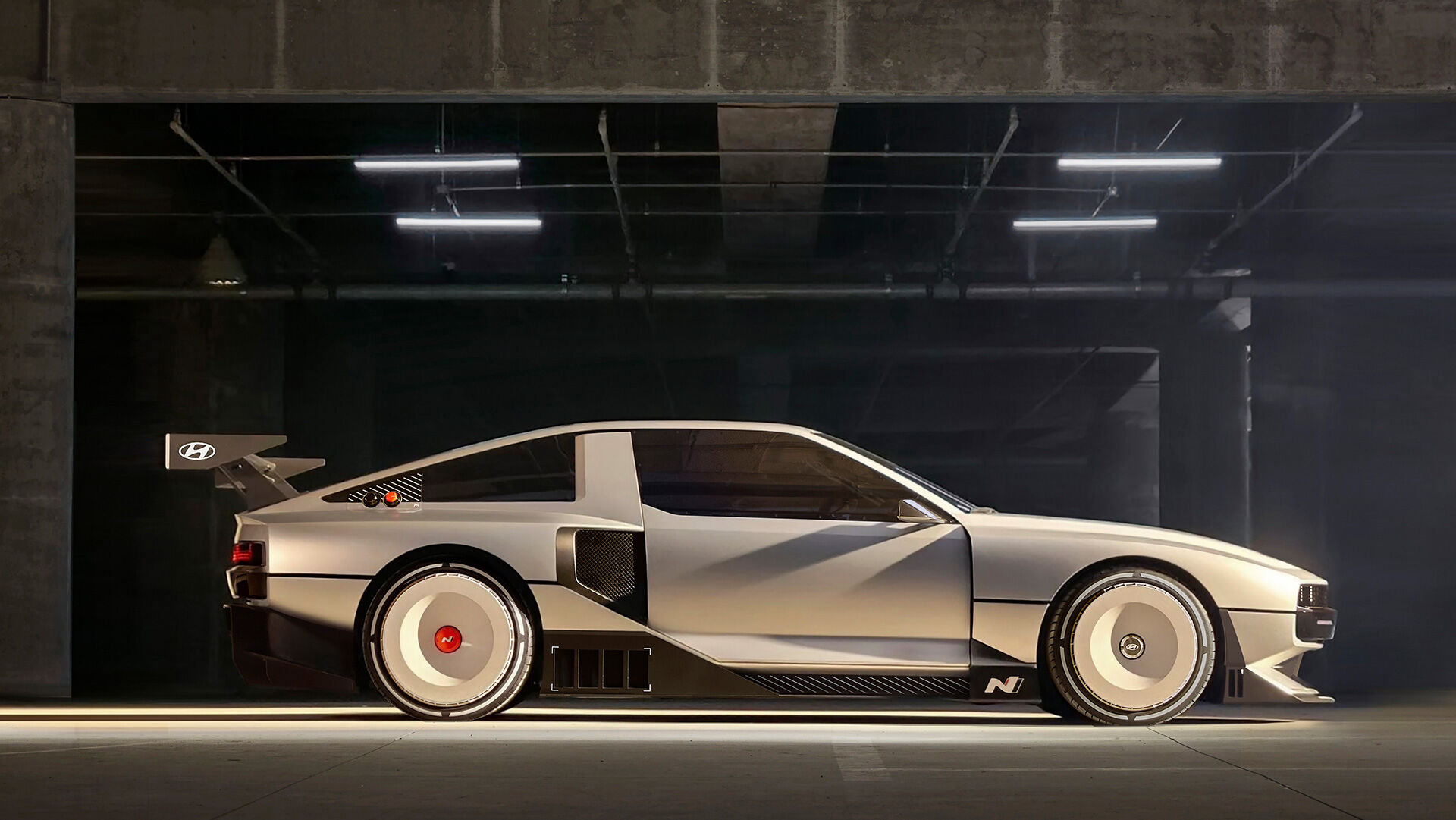Hyundai has consistently pushed the boundaries of automotive design, blending innovation with practicality to create vehicles that resonate with consumers globally. This article explores the future trajectory of Hyundai’s car design, envisioning how emerging trends, technologies, and consumer preferences will shape the next generation of Hyundai vehicles.
The Evolution of Hyundai’s Design Philosophy
Hyundai’s approach to car design has evolved significantly over the years, reflecting advancements in technology, shifting consumer demands, and global design trends.
Early Foundations and Influences
- Hyundai initially focused on practicality and affordability, drawing inspiration from Japanese and European design principles.
- The appointment of Peter Schreyer in 2006 marked a shift towards more expressive and sophisticated designs, setting the stage for Hyundai’s design evolution.
Fluidic Sculpture and Sensuous Sportiness
- The introduction of “Fluidic Sculpture” in 2010 emphasized fluid lines and dynamic forms, enhancing Hyundai’s design language with a sense of motion and elegance.
- Recent years have seen Hyundai embrace “Sensuous Sportiness,” combining sensuous shapes with sporty aesthetics to evoke passion and dynamism.
- Models like the Hyundai Tucson and Hyundai Sonata exemplify this evolution with their bold exteriors and refined interiors.
Also Read : The Cutting-Edge Technology in Hyundai Car Design
Emerging Trends in Automotive Design
The future of Hyundai car design will be shaped by several key trends that influence aesthetics, technology integration, and sustainability.
1. Sustainable Design Practices
- Hyundai is increasingly focusing on sustainable design practices, integrating eco-friendly materials and manufacturing processes into its vehicles.
- Examples include the use of recycled materials, energy-efficient production facilities, and eco-friendly vehicle components.
- Consumer demand for environmentally responsible vehicles drives Hyundai’s commitment to reducing carbon footprints and enhancing sustainability.
2. Advanced Connectivity and Autonomous Features
- The future of Hyundai cars will feature enhanced connectivity, allowing seamless integration with smart devices and cloud-based services.
- Autonomous driving technologies will continue to evolve, offering advanced safety features and autonomous capabilities in Hyundai vehicles.
- Hyundai’s partnership with tech giants for AI-driven solutions and autonomous vehicle development positions it at the forefront of automotive innovation.
3. Design Innovation with AI and Virtual Reality
- AI and virtual reality (VR) will play a crucial role in shaping Hyundai’s future design innovations.
- AI-driven design simulations will optimize aerodynamics, vehicle performance, and interior ergonomics.
- Virtual reality will enable customers to experience Hyundai’s future models in immersive digital environments, enhancing pre-purchase engagement.
Consumer-Centric Design and Personalization
Hyundai’s future design philosophy will prioritize consumer preferences and personalized experiences, catering to diverse global markets.
1. Customizable Features and Modular Platforms
- Hyundai will offer modular platforms that allow for customizable features and configurations to meet individual customer needs.
- Personalized design elements, from exterior color choices to interior materials, will enhance customer satisfaction and brand loyalty.
- Hyundai’s commitment to consumer-centric design ensures that future models resonate with diverse demographics and cultural preferences.
2. Enhanced User Experience and Interface Design
- Intuitive user interfaces and enhanced user experiences will define Hyundai’s future vehicle interiors.
- Augmented reality (AR) displays and gesture recognition technology will revolutionize how drivers interact with vehicle controls and infotainment systems.
- Hyundai’s focus on ergonomic design and advanced connectivity will create seamless and enjoyable driving experiences for customers.
Case Studies and Examples
To illustrate the future of Hyundai car design, consider the following case studies and examples:
- Hyundai Prophecy Concept: The Prophecy concept car showcases Hyundai’s future design language, featuring aerodynamic curves and sustainable materials.
- IONIQ Electric Lineup: The IONIQ brand represents Hyundai’s commitment to electric mobility, offering a range of eco-friendly vehicles with advanced technology and stylish design.
- Consumer Feedback: Surveys and reviews from Hyundai customers highlight the importance of design and technology in their purchasing decisions, indicating strong support for future Hyundai innovations.
Conclusion
In conclusion, the future of Hyundai car design is poised for unprecedented innovation, driven by sustainable practices, advanced technologies, and consumer-centric design philosophies. By envisioning Hyundai’s future design trajectory, we anticipate vehicles that not only excel in performance and aesthetics but also lead the industry in connectivity, autonomy, and environmental responsibility. Hyundai continues to inspire with its commitment to pushing boundaries and shaping the future of automotive design.
(source)
Originally posted 2024-06-27 07:58:44.
